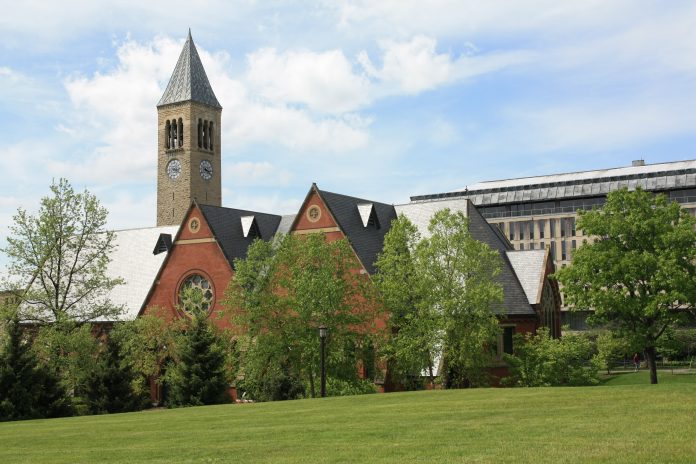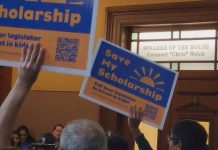Earlier this month in Vengalattore v. Cornell University, the United States Court of Appeals for the Second Circuit provided a welcome affirmation of colleges’ and universities’ obligation to respect due process on campus. The court resolved a technical question of law and remanded the case for consideration on the merits of critical elements of the complaint. But Judge José Cabranes’ stern concurrence stressed that nothing less than the future of liberal education in America is at stake in this case – and the many others like it winding their way through the courts.
Controversy – at least among those who care about basic rights, fundamental fairness, and liberal education – over colleges’ and universities’ abuse of power has shifted ground. Owing to his Department of Education’s policies, during President Obama’s presidency, alarm peaked over the deprivation of due process in sexual misconduct cases. Recently, the propensity of institutions of higher education to punish dissenting opinion and to discriminate based on race to advance progressive interpretations of social justice has generated greater dismay. But the two forms of abuse of power are closely connected, and the struggle to preserve due process on campus persists.
The Obama administration institutionalized on the national level an erosion of due process that was well underway in higher education. In 2011, Russlyn Ali, assistant secretary in the Department of Education’s Office of Civil Rights, issued a “Dear Colleague” letter that instructed universities, on pain of losing federal assistance, to reduce basic protections for those accused of sexual misconduct. Among other guidance and directives, Ali’s letter blurred the distinction between sexual harassment and protected speech. It required colleges and universities to use a “preponderance of the evidence” standard – the lowest evidentiary standard – in evaluating the grave accusation of sexual assault. And it subjected the accused to double jeopardy by giving the accuser the right to appeal.
The letter provoked little protest among university administrators, faculty, and students in significant measure because it reflected the dominant ethos on campus. “The Shadow University: The Betrayal of Liberty on America’s Campuses” (1998), by Foundation for Individual Rights in Education (FIRE) founders Alan Charles Kors and Harvey Silverglate, shows just how extensive the curbing of due process and curtailing of free speech were in universities in the 1990s. The Department of Education’s 2011 missive ratified the long-fashionable campus conviction that due process and free speech impede, rather than advance, the cause of justice.
The circumscribing of due process and free speech not only undercut justice on campus, but also weakened liberal education. Free speech creates the conditions under which students and faculty can transmit knowledge, exchange ideas, pose tough questions, float probing conjectures and unorthodox hypotheses, examine vexing issues from a variety of angles, and revise and refine positions in light of changing circumstances and fresh evidence. Due process establishes impartial procedures for determining whether members of the community have acted within their rights and complied with their obligations.
The two principles work together. Promises of free speech, for example, are worthless if universities can arbitrarily shut down inquiry, disinvite controversial speakers, and punish unfashionable views. If, in addition, some members of the campus community are presumed guilty until proven innocent, then students will internalize the lesson that accusations and not evidence and reasoned argument decide serious matters. That lesson, in turn, subverts the case for free speech.
Free speech and due process stem from the same beliefs about the dignity and the fallibility of human beings. Both involve essential rights that apply equally to all without regard to power, status, or identity. And both presuppose that all of us – without regard to power, status, or identity – are fallible human beings, prone to skewed interpretations, biased judgments, and self-serving assessments. Consequently, we are all bound to benefit from the illumination that comes from the vigorous give and take that free speech makes possible, and all need the protections against abuse of power provided by rigorous guarantees of due process.
In Vengalattore v. Cornell University (I serve on the board of the New Civil Liberties Alliance, which represents the plaintiff-appellant), the appeals court overruled the trial court, holding “that Title IX affords a private right of action for a university’s intentional gender-based discrimination against a faculty member, and that the Complaint sufficiently asserts such a claim.” Enacted in 1972, Title IX provides that “[n]o person in the United States shall, on the basis of sex, be excluded from participation in, be denied the benefits of, or be subjected to discrimination under any education program or activity receiving Federal financial assistance.”
In the winter of 2015, while under consideration for tenure in the Cornell University physics department, Dr. Mukund Vengalattore was informed by university administrators that a graduate student (“Jane Roe”), who withdrew from his lab in 2012 and had been accused of poor work quality and unprofessionalism, had recently accused him of conducting a secret consensual sexual relationship with her in 2011 while she was working in his lab. She also accused him of raping her. Vengalattore flatly denied the allegations. Although Cornell did not find that he raped Roe, the university denied his tenure bid and concluded that the consensual sexual relationship was more likely than not to have taken place, that this conduct violated university rules prohibiting romantic and sexual relationships between faculty and students whom they supervised, and that Vengalattore lied about the relationship.
While not challenging the tenure decision, Vengalattore contends that Cornell discriminated against him in numerus ways because he is a man. He alleges, for example, that Alan Mittman, director of Cornell’s Office of Workforce Policy and Labor Relations, “conduct[ed] numerous informal interviews of Roe, keeping the Dean informed of Roe’s allegations” while not informing Vengalattore. He alleges that when initially informed of the charges, he asked for the assistance of counsel, but investigators told him that was unnecessary and asked additional questions. He alleges that Cornell refused to interview many witnesses whose names he provided who would have supported his account. He alleges that Cornell was time-barred by university rules from proceeding with Roe’s complaint. He alleges that Cornell investigators placed the burden on him to show that the accusations from several years earlier were false. He alleges that Dean Gretchen Ritter, who was also responsible for denying Vengalattore tenure, adopted the investigators’ report for the university without a hearing. And he alleges that Cornell has prevented him from obtaining employment elsewhere by communicating its false findings to other universities.
Thanks to the appellate court ruling, Vengalattore will have his day in court.
In a brief concurrence notable for its candor about the larger consequences for liberal education, Judge José Cabranes observed that if true, Vengalattore’s allegations reflect “deeply troubling aspects of contemporary university procedures to adjudicate complaints under Title IX and other closely related statutes.” Those procedures, according to Cabranes, “have been compared unfavorably to those of the infamous English Star Chamber.” Consequently, “Vengalattore’s allegations, if supported by evidence, provide one such example of the brutish overreach of university administrators at the expense of due process and simple fairness” and “[h]is allegations, if corroborated, would reveal a grotesque miscarriage of justice at Cornell University.”
Moreover, the widespread “threats to due process and academic freedom are matters of life and death for our great universities,” Cabranes maintained. While “[t]he day is surely coming – and none too soon – when the Supreme Court will be able to assess the various university procedures that undermine the freedom and fairness of the academy in favor of the politics of grievance,” legal rulings do not get to the heart of the matter. Colleges and universities must take responsibility for governing themselves, consistent with the imperatives of liberal education: “It is incumbent upon their leaders to reverse the disturbing trend of indifference to these threats, or simple immobilization due to fear of internal constituencies of the ‘virtuous’ determined to lunge for influence or settle scores against outspoken colleagues.”
To provide an education worthy of free men and women, university administrators and faculty must cease to furnish students a highbrow spectacle of censorship, witch hunts, and kangaroo courts, and instead transform their campuses into bastions of free speech and due process.
Originally published by RealClearPolitics. Republished with permission.
More great content from School Reform News










